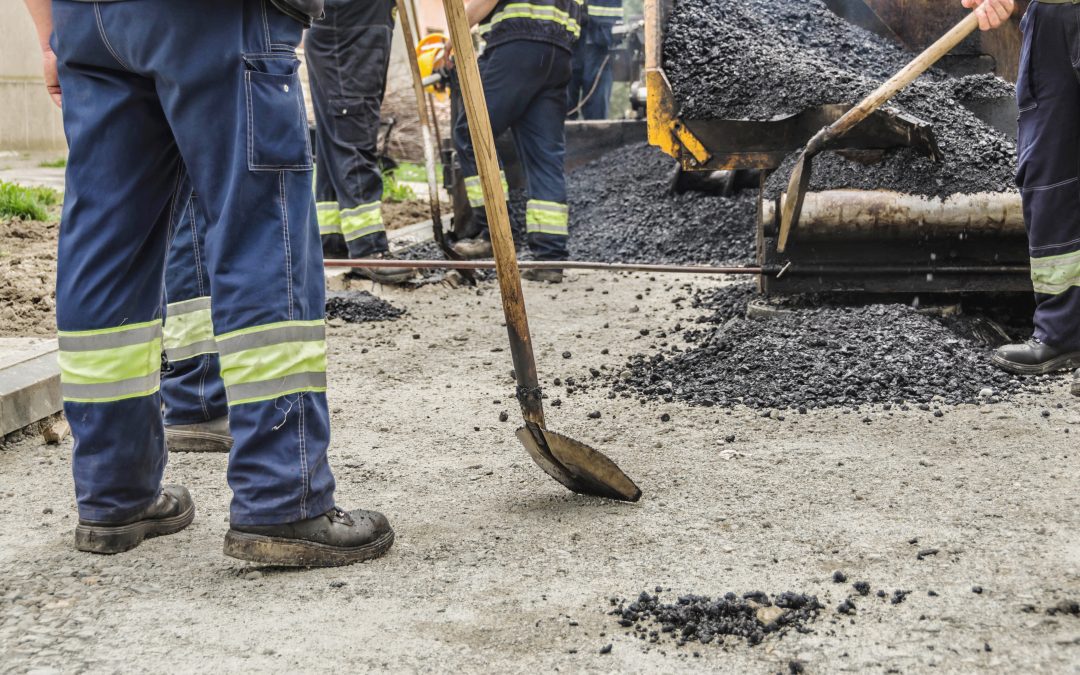When you’re driving down the highway, you don’t often think about the smooth, durable black stuff underneath your tires. It turns out, there’s a lot more to asphalt pavement than meets the eye. For instance, it’s one of the most widely-used materials in the country – more than 94 percent of American roads are paved with asphalt – and there are many types that cater to different situations.1
If you plan to take on a pavement project such as resurfacing a driveway, review these different types of asphalt so you can be sure you’re getting the best product for the road ahead.
Porous Asphalt
Porous asphalt is often used to pave parking lots because it reduces standing water after a heavy rainstorm. This style of asphalt is ideal for rainy spots, like the Puget Sound area.
When storm water pools on an asphalt surface, it can cause defects, such as potholes, which are dangerous for vehicles and pedestrians. Porous asphalt combats pot holes and other defects by giving standing water a place to go.
A layer of permeable asphalt is placed over a reservoir of open-graded stone. Storm water travels through the pavement, into the stone bed and eventually infiltrates the soil. When properly maintained, porous asphalt can last 20 years or more.2
Quiet Pavement
Just as its name suggests, quiet pavement is a type of asphalt that reduces traffic noise. Paving a noisy road with a stone-matrix asphalt or open-grade friction has shown to reduce noise levels by up to seven decibels. According to the Asphalt Pavement Alliance, reducing noise levels by even just three decibels is equivalent to doubling the distance between a sound source and your ears.3
Open-graded and porous asphalts are common quiet pavement mixtures because they dissipate the sound energy created by the tire contacting the asphalt surface. Finely graded asphalt mixtures also significantly reduce noise levels because they minimize contact between the pavement and tire.
Perpetual Pavement
Perpetual pavement uses multiple durable layers to provide drivers with a long-lasting, smooth and safe surface. This asphalt paving style starts with the application of a base layer that’s strong, flexible and resistant to base cracks caused by traffic tension. The mid-layer provides structure and the top layer is a rut-resistant surface that gives the asphalt its durability. With consistent maintenance and restorative care, perpetual pavement can last at least 50 years.4
Hot Mix Asphalt
Hot mix asphalt refers to the application method rather than the type of asphalt. It’s one of the most commonly used mixes in the industry because it’s durable and easy to apply. Hot mix is processed at scorching temperatures of 270 to 325 degrees Fahrenheit so it remains malleable enough to spread across the grade.5 When the mixture dries, it becomes hard as rock.
There are several types of hot mix pavement:
- Dense-Graded – Less permeable due to high density
- Stone Matrix – More durable due to increased asphalt content, binder and fibers
- Open-Graded – More permeable, used to create porous mixtures
Warm Mix Asphalt
Warm mix asphalt is manufactured, mixed and applied at temperatures 50 to 100 degrees cooler than hot mix asphalt. This reduces fuel consumption and greenhouse gases during the manufacturing and mixing process. Other benefits include an extended paving season, increased production, the ability to incorporate reclaimed asphalt pavement (RAP) and improved long-term durability.6
Cold Mix Asphalt
Cold mix asphalt is commonly reserved for smaller projects, such as repairing potholes, utility cuts and patches on rural roads. The mix isn’t permanent, so it’s not recommended for high-use surfaces. Two benefits of cold mix are it can be mixed on-site using just soap and water, and it can be applied during winter. This is helpful if a repair is needed on a road outside of paving season and there’s no hot mix plant nearby. A cold mix that’s been applied correctly and is properly maintained should last up to a year.7
Asphalt Services Throughout Tacoma, Covington and Bellevue
No matter which type of asphalt is right for your situation, it’s crucial you work with a professional paving contractor so you can get the most out of your asphalt driveway or parking lot. Lakeridge Paving Co. has been providing the Puget Sound area with quality residential and commercial asphalt paving for more than 40 years! For more information, give us a call at 888-403-8290 or visit us online to request a quote.
—
1 http://www.asphaltpavement.org/index.php?option=com_content&task=view&id=21&Itemid=41
2 http://www.asphaltpavement.org/index.php?option=com_content&task=view&id=359&Itemid=863
3 http://driveasphalt.org/noise
4 http://www.flexiblepavements.org/technical-resources/perpetual-pavement/perpetual-pavement
5 https://www.forconstructionpros.com/asphalt/article/10297263/why-tracking-temperatures-is-key-to-successful-asphalt-paving
6 http://asphaltmagazine.com/warm-mix-asphalt-proving-its-benefits/
7 http://kleencoconstruction.com/news/cold-mix-asphalt-faq-cold-mix-asphalt/


